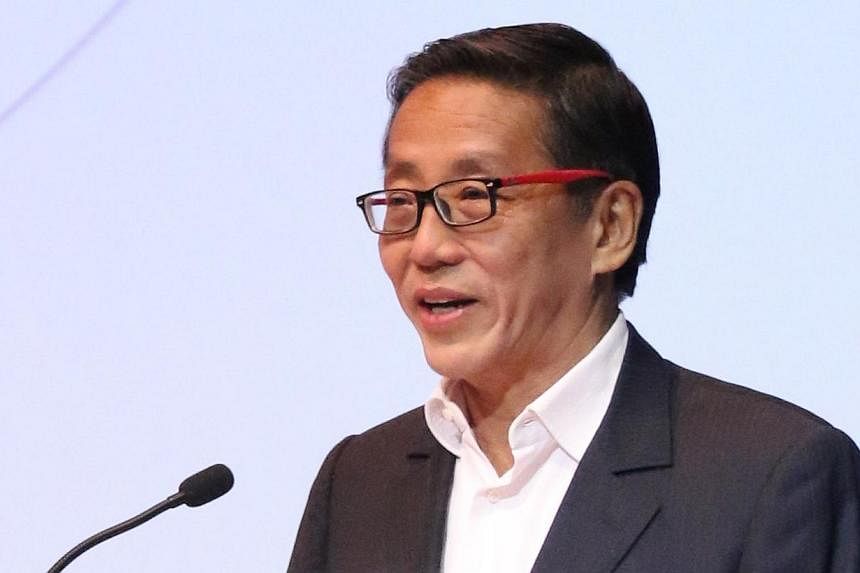Housing affordability and income inequality are two challenges facing Singapore's economy in the next 50 years, businessman Ho Kwon Ping said yesterday.
In a lecture that examined how the nation's economic strategy would need to evolve in the coming decades, Mr Ho offered some radical solutions for these bread- and-butter issues that have become political hot potatoes.
To keep home prices within the reach of Singaporeans, he proposed setting "sale price caps" for all new homes and doing away with the distinction between public and private housing.
The price caps would be decided by a redefined Housing Board, which would have given up its role as a developer and become a "national housing price regulator", said Mr Ho, in the second of five Institute of Policy Studies- Nathan lectures that he is giving on Singapore's public policy.
After setting the sale prices for homes on a land parcel, the HDB would auction the plot to private developers to build the homes.
This move would ensure housing affordability by allowing home prices to be directly pegged to the economy's health and income growth, said Mr Ho, who is also executive chairman of hospitality group Banyan Tree Holdings.
"We already have price regulation through HDB unilaterally setting the price of entry-level flats," he noted.
Extending this to private homes would improve the current system, in which the prices of public housing - where 85 per cent of Singaporeans live - are influenced by private home prices which, in turn, are determined to some extent by foreign demand, he said.
Mr Ho's proposal drew several questions from the 250 people at last night's lecture, with some questioning how it would dovetail with housing subsidies and whether the proposal was similar to the now-defunct Design, Build and Sell Scheme (DBSS). Mr Ho responded that the subsidies would be built into the HDB's price caps, and the proposal differed from DBSS as the HDB would not be selling the flats itself.
As for tackling income inequality, the erstwhile journalist and dissident had two proposals.
One was to give graduates of vocational and technical schools more industry experience and apprenticeships so that they can command similar starting salaries to those of university graduates.
The other was to set up a "more innovative immigration programme" to raise the quality of foreign workers here, many of whom are cheap and unskilled and depress salaries at the low end.
This could be done by converting the current "punitive" foreign worker levy into deferred savings, which can be withdrawn by the worker when he leaves Singapore.
This Central Provident Fund- like savings account would raise foreign workers' overall pay and attract higher-skilled talent, Mr Ho said. It would also help ensure good behaviour among these workers while they are in Singapore.
"The two-year 'use and discard' approach to foreign workers, besides being less than humane, is just simply bad economics," he added. It would be "far more productive" to invest in training foreign workers, giving them the incentive of a longer work residency here and top-ups to their savings accounts.
Such creative solutions to Singapore's land and labour issues, as well as to the problem of more competition from other global cities, will be needed as the nation deals with the biggest "known unknown" in the next 50 years: disruptive technological change, said Mr Ho.
His lecture yesterday, held at the National University of Singapore, followed his first talk last month on politics and governance in Singapore in the next 50 years.
He will give three more lectures - on security and sustainability, demography and family, and society and identity - in his capacity as the first S R Nathan Fellow.

